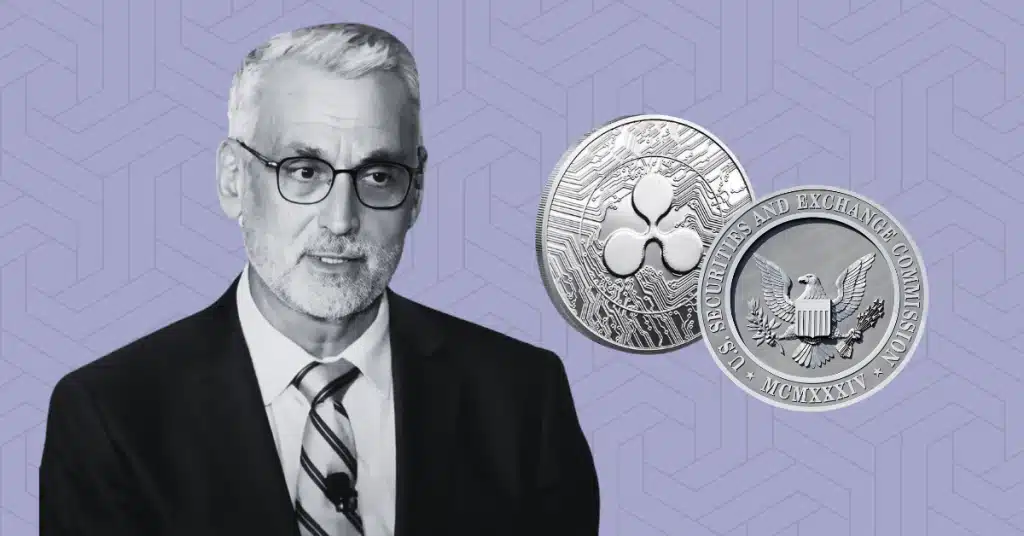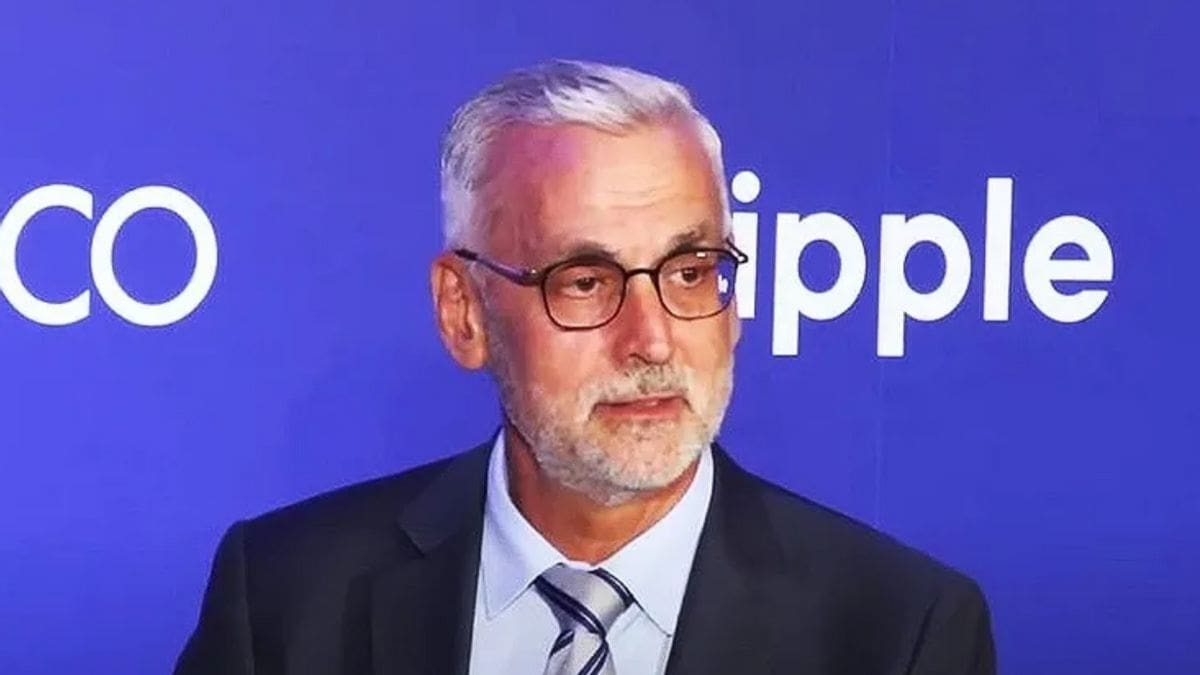Stuart Alderoty, Ripple’s Chief Legal Officer (CLO), has firmly stated that the XRP non-security status will remain intact, even in the face of potential SEC appeals. Alderoty underscores that Judge Analisa Torres’ ruling on XRP’s non-security status and the treatment of XRP’s secondary market sales is established law and will persist irrespective of any appeal the SEC might consider.

In a recent interview with J.W. Verret on Crypto Law TV, Alderoty reiterated his confidence in the stability of XRP’s legal standing. The discussion, reported by prominent XRP community figure Digital Asset Investor, delved into the implications of a potential SEC appeal on XRP’s regulatory future.
Judge Torres’ Ruling: A Pivotal Decision for XRP Non-Security Status
Alderoty emphasizes that Judge Torres’ decision regarding the XRP non-security status is a landmark ruling that stands strong. This includes the determination that XRP’s secondary market transactions do not qualify as investment contracts. The Ripple CLO asserts that reversing such a decision, even with potential support from higher courts, is highly unlikely.
The historical rarity of reversals in the Second Circuit Court bolsters Alderoty’s belief in the permanence of XRP non-security status. As he pointed out, the rate of reversal for lower court rulings in this circuit is below 10%, reinforcing the credibility of Judge Torres’ well-reasoned conclusion.

Alderoty expressed, “Given Judge Torres’ meticulous consideration of all aspects of this case, we are confident that the SEC’s attempts to overturn the court’s decision will not succeed.” This statement underscores the robustness of XRP’s current legal position in the face of potential challenges.
Alderoty Advises SEC to Reconsider Appeal Plans
In response to speculation about an SEC appeal, Alderoty has offered a blunt assessment. He acknowledged the SEC’s tendency for what he termed “irrational” actions, suggesting that an appeal is a possibility. However, he cautioned the SEC against pursuing this course.
Alderoty noted that the SEC’s primary mission is to protect investors. He argued that appealing this decision contradicts that mission, especially since the case does not involve allegations of fraud, victimization, or injury. “The court criticized the SEC for engaging in litigation gamesmanship rather than adhering to the law,” Alderoty remarked. He urged the SEC to reconsider its appeal strategy, as it could undermine the agency’s core objectives and harm investor interests.
The Ongoing Battle: SEC’s Litigation Tactics Under Scrutiny
Alderoty has characterized the SEC’s litigation tactics as futile and likely to fail in higher courts. He forecasted that future appeals would meet the same fate as the current case, with Judge Torres having decisively rejected the SEC’s attempts to expand securities legislation in this instance.
“[…] They’re going to continue to be rejected by courts of appeal and ultimately rejected by the Supreme Court,” Alderoty asserted. His confidence reflects a belief that the judiciary will stand firm against what he views as SEC overreach.

The SEC’s prior actions, including an interlocutory appeal, focused on challenging the summary judgment ruling regarding XRP programmatic sales and other distributions rather than directly addressing XRP non-security status. This appeal was subsequently denied by the court.
Conclusion: A Defining Moment in Crypto Regulation
The current debate over XRP’s regulatory classification represents a crucial juncture in cryptocurrency regulation. Ripple’s CLO, Stuart Alderoty, has firmly asserted that the XRP non-security status is secure, even in the face of potential SEC appeals. This position sets a precedent for XRP and possibly other digital assets, backed by Judge Torres’ decisive ruling.
Alderoty’s strong stance and advice against an SEC appeal could signal a shift in the regulatory dynamics between authorities and the cryptocurrency industry. This judicial development will likely impact digital asset regulation and the role of crypto in the financial system.
As discussions continue about XRP’s security status, the outcome of this court battle will shape the boundaries of digital asset regulation in the US. The crypto community and XRP investors can take reassurance in Alderoty’s firm position on the XRP non-security status, regardless of any appeals that may arise. TheBITJournal remains committed to delivering comprehensive insights into the latest developments that are shaping the crypto sector.




























